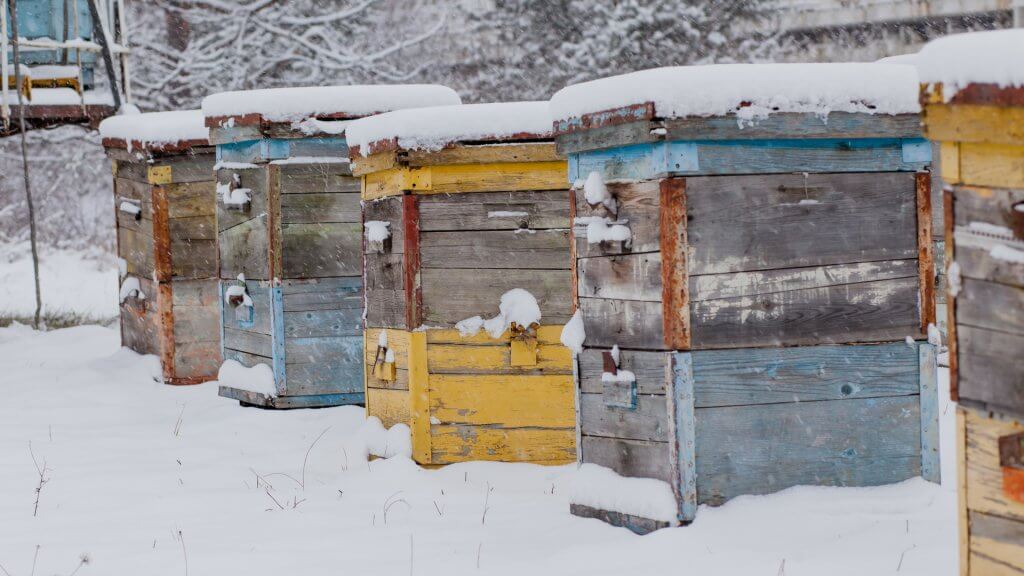The best food for feeding bees in the winter is, of course, the one they make for themselves: their own honey.
 Besides sugars, honey contains nutrients that keep the colony healthy, strong and better able to fight off parasites. With enough honey, most hives stand a good chance of surviving the winter until the spring nectar flow. However, as the fall approaches you may find your colony does not have the stores they need.
Besides sugars, honey contains nutrients that keep the colony healthy, strong and better able to fight off parasites. With enough honey, most hives stand a good chance of surviving the winter until the spring nectar flow. However, as the fall approaches you may find your colony does not have the stores they need.
What Causes a Lack of Stored Honey?
There are many possible reasons that could cause a colony’s stores to be insufficient to support them through the colder months. For instance, the number of bees in the colony at the peak of nectar flow may have been low. A weak queen, swarming, or getting a late start on laying eggs due to colder-than-normal spring temperatures could be the cause.
Other factors that can cause a low number of workers include loss of adults to disease or infestation by parasites such as Varroa mites. No matter what the cause, too few bees in a hive means there are not enough workers gathering and storing nectar and pollen.
In other cases, the colony may collect and store plenty of honey, only to have it stolen. The culprits may be robber bees from competing hives, yellow jackets or other animals attracted to the honey. This robbing often occurs when the hive can least afford it: in the fall when there are very little natural resources left to gather.
When to Assist with Feeding Bees in the Winter
In the wild, a colony that does not have enough food stored to survive the winter faces certain collapse. Without enough stored honey, the bees will not have the energy to keep themselves warm while clustering. For domesticated hives, we beekeepers can supplement their stores to help ensure their survival.
The amount of stored honey needed for the winter varies depending upon geographical location and climate. In colder locations, hives use up to 90 pounds of honey, while warmer locations may need as little as 30. This translates to a full deep box of frames in colder locations or a Dadant depth super in warmer climates. If you find your bees do not have enough honey stored, you should consider providing the colony with supplemental nutrition. We recommend talking to local beekeepers to see what they recommend as ideal winter weight for your area.
What to Use for Feeding Bees in the Winter
You can find lots of articles and recipes that recommend using candy, sugar syrup and even plain granulated sugar for feeding bees in the winter. However, recipes that use a sugar-based supplement do not provide any additional nutrients or feeding stimulants. A more nutritionally complete product gives your bees the best chance at survival when honey stores are low.

Winter Patties from Dadant & Sons are an easy way to provide nutrition to a hive. Made from sugar supplemented with AP23 Pollen Substitute and Honey-B-Healthy, most bees accept these high-carbohydrate patties. The patty shape makes it easy for keepers to handle and add to their hives when needed.
Dadant & Sons Pollen Substitute AP23 is a protein feed blended from selected ingredients that are palatable to honey bees. Honey B Healthy is a proven bee feeding stimulant made from food-grade lemongrass and spearmint oil concentrates. This combination makes our Winter Patties attractive to hungry colonies, providing the nutrients they need to survive the winter.